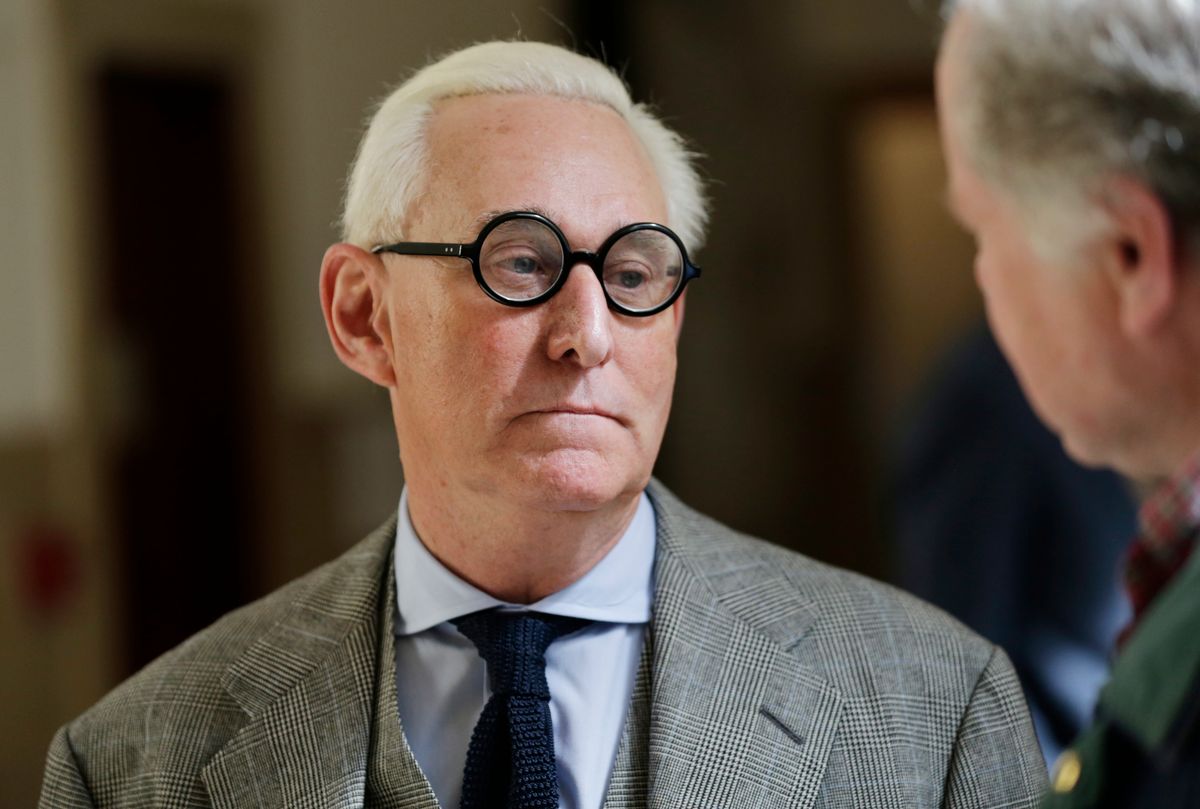Eccentric right-wing political strategist Roger Stone is the next target for the team of investigators being led by Special Counsel Robert Mueller, according to a breaking report from CNN.
CNN's sources say that Mueller's team is scrutinizing whether Stone was telling the truth when he claimed that Randy Credico, a conservative radio host, was the intermediary who served as a backchannel between Stone and whistleblower site Wikileaks during the lead-up to the 2016 election. At the time, Wikileaks was a crucial channel for publishing damaging emails stolen from the Democratic National Committee, in a hack likely perpetuated by Russian state agents. The thousands of internal emails from Democratic operatives proved embarrassing to the Clinton campaign and the Democratic Party’s reputation during the lead-in to the 2016 election.
The saga between Stone and Wikileaks is troubling because of the connection to the foreign agents perpetuation the hacking, who presumably intended to toy with American political opinions and may have used Stone and Wikileaks as pawns in an illegal game. As my colleague Matthew Rozsa wrote previously in May 2018, when it was revealed that Stone sought smear-worthy material about Clinton from Wikileaks cofounder Julian Assange:
In September 2016, Stone asked Randy Credico, a New York radio personality who had previously interviewed Assange for his show, to reach out to the ostensible whistleblower for information about Hillary Clinton that could damage her presidential campaign, according to The Wall Street Journal. Because Assange was known at that time to be in possession of emails stolen from the Democratic National Committee (and which he is believed to have acquired from Russia), Stone asked Credico by email to look into whether Assange could find anything about then-Secretary of State Clinton's involvement in allegedly ruining a supposed Libyan peace deal in 2011.
"Please ask Assange for any State or HRC e-mail from August 10 to August 30--particularly on August 20, 2011," Stone wrote to Credico. After the radio host speculated that any damning emails would already be on WikiLeaks' website, Stone asked "Why do we assume WikiLeaks has released everything they have ???"
Credico can be seen in the exchange asking that Stone allow him to have a "little bit of time," before adding a few hours later, "That batch probably coming out in the next drop...I can’t ask them favors every other day .I asked one of his lawyers...they have major legal headaches riggt now..relax."
The big question at the heart of Mueller's investigation — namely, whether there was collusion between Trump's allies and the Russian government, who were fighting a disinformation campaign and wanted to smear the Clinton campaign — is raised by the complex relationship between Stone, Wikileaks, and the foreign operatives involved in leaking Democratic Party emails. CNN’s sources reported that “a key area of [Mueller’s] inquiry is whether Stone actually received information from WikiLeaks and who helped facilitate that information-sharing.”
Stone has a history of being associated with questionably legal campaign maneuvers and is fond of deceptive tactics, a practice known in the political consulting world as "ratf**king." In the 1972 Republican primary, Stone, a Nixon supporter, made a donation to Nixon's opponent Pete McCloskey in the name of the "Young Socialist Alliance," then sent the receipt to a newspaper, in an attempt to generate bad press for McCloskey. An inveterate Nixon fan, Stone would later get the disgraced ex-president tattooed on his back. Stone is known for being charismatic and media-friendly in real life; he was the subject of a 2017 Netflix documentary, "Get Me Roger Stone." In an interview, the filmmakers told Salon that he "likes to play a super-villain."

Shares